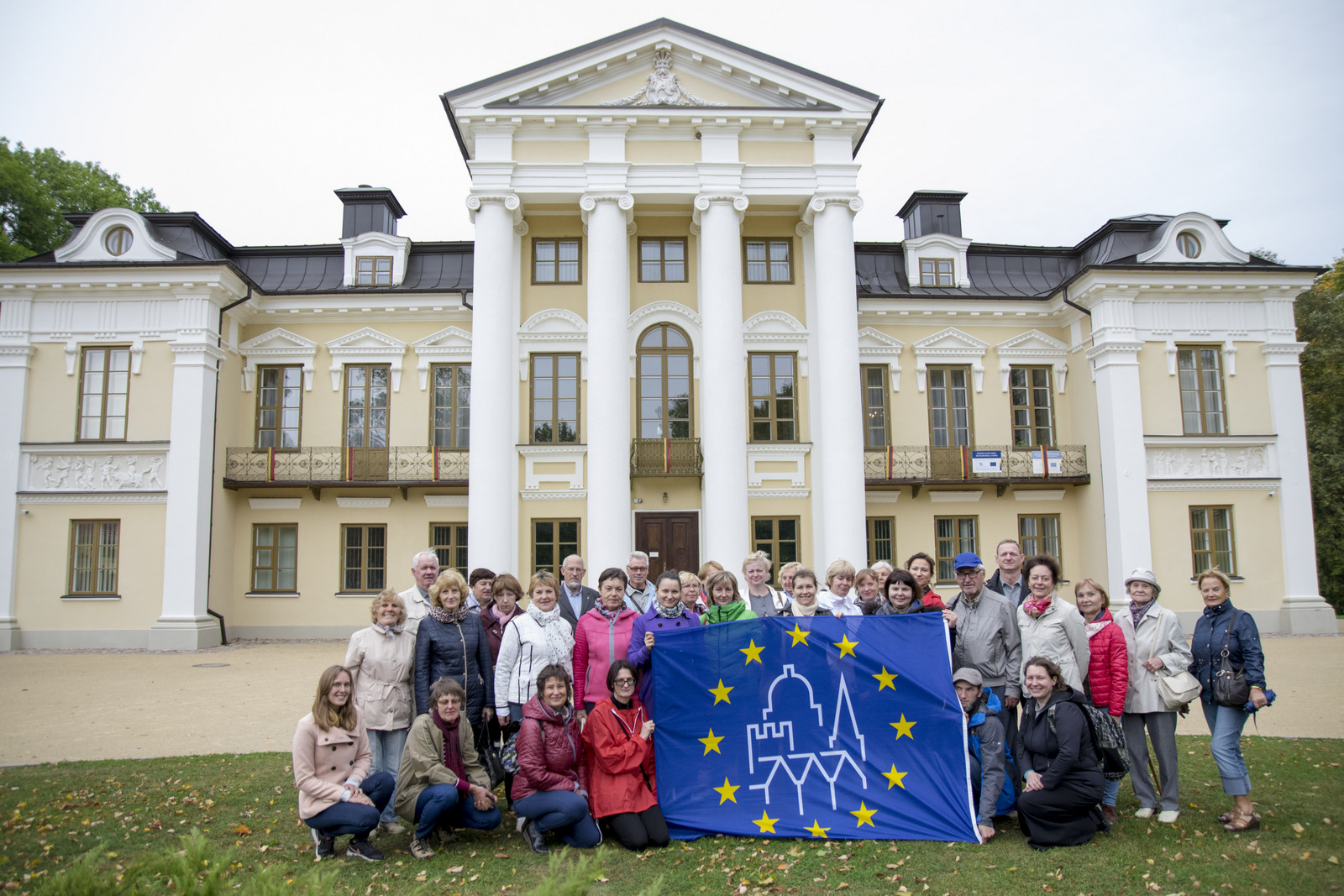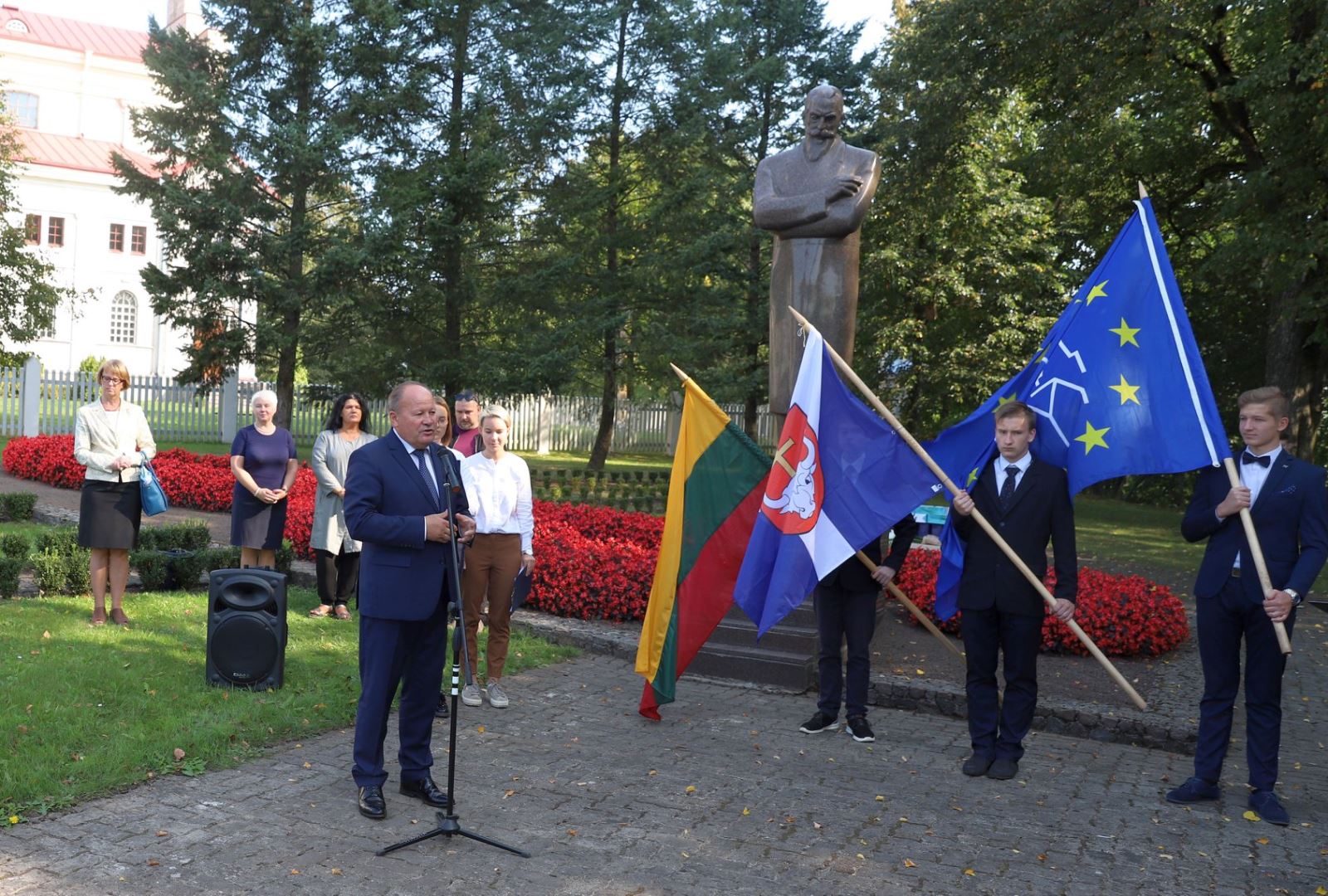Over 5000 Visitors Celebrated European Heritage Days 2018 in Lithuania
Over 5000 Visitors Celebrated European Heritage Days 2018 in Lithuania
When approached with a proper interest, listening, and respect for centuries-old traditions, cultural heritage of the past centuries opens a wide range of themes, becoming a bridge between the past and the future.
Inspired by this approach, Lithuania invited its citizens to celebrate the centenary of the restoration of its independence by exploring the heritage of the past century. On 21-23 September, the annual European Heritage Days were held in 48 out of 60 municipalities (64 localities) of Lithuania with the theme "Discover the Heritage of the Century."
This exciting weekend attracted over 5000 participants to various places and objects of cultural heritage that have created Lithuania's identity. More than 300 state-owned monuments, modern architecture, and other heritage objects that symbolise the restored Lithuania were featured in over 118 different events.
Heritage Walks in Vilnius

Photo from Vilkaviškis District Municipality
The heritage of Vilnius, the capital of Lithuania, radiated with a special light during the European Heritage Days weekend. Its unique values were presented to the citizens through numerous walks organised by the Department of Cultural Heritage of the Ministry of Culture, which coordinates European Heritage Days in Lithuania.
One of the walks took place in the Rasų Colony as a part of the project initiated by Joseph Montville, a well-known public figure, philanthropist, banker, and sponsor of various initiatives. Together with Doctor Dalius Vrubliauskas, the participants explored the remaining fragments of the "city garden" ideas implementation in Vilnius, which reveals the features of the suburban city of the 20th century. In the walk titled "Non-Lithuanians and Non-Poles in Vilnius," Dr. Bernard Gailius explained the relationship between "non-poles" and "non-Lithuanian" people during the twentieth century in Vilnius and how they influenced the development of the city.
Darius Pocevičius, the author of the book "The historic relics of Vilnius in 1944 -1990" and an organizer of non-traditional cultural initiatives, revived the pages of the book in a thematic walk. At the Wroblewski Library of the Lithuanian Academy of Sciences, Dr. Aistė Petrauskienė read a lecture "Let’s get to know the inspirational landscape of freedom struggles."
Celebrations in Kaunas

Kaunas, the second largest city in Lithuania and once a temporary capital during the interwar period, presented numerous European Heritage Days experiences.
The public was invited to sightseeing tours of modern interwar architecture that left a particularly deep footprint in the history of the architecture of Lithuania. Kaunas City Municipality also organised a bus trip that enabled participants to explore the traces of the signatories of the Act of Reinstating Independence of Lithuania in the region.
Students and pupils were also involved in the events through special orientation games and cycling trips, which provided an engaging way to explore heritage.
Non-Traditional Ways of Exploring Heritage
Smaller towns in Lithuania have also invited the public to discover the century-old heritage in a non-traditional way. In Šiauliai, a picturesque city on the north of the country, an interactive game "Everything's Logical" was organized on Facebook, while nightly walks attracted those who are not scared of the dark and tragicomic stories.
The Municipality of Šiauliai presented the interwar heritage of the city in an expressive theatrical way. People were also invited to participate in the touristic photo-orientation campaign titled "Discover the Century’s Heritage in Šiauliai." Similar orientation games were organized in other towns in Lithuania, including Garliava, Panevėžys, Žagarė, Plungė.
The initiative of Lithuanian Association of People with Disabilities

The Lithuanian Association of People with Disabilities joined this year’s EHD and organized 3 walking tours in Vilnius, Marijampolė, and Panevėžys. All the events were part of the project „Artistic - Social Interaction: Angel Movements“.
The project organised visits to cultural heritage sites and objects important to the centenary of the statehood restoration. Local guides and tourism specialists joined the theatrical group to introduce the participants to the history and values of the visited cultural objects.
The artistic-social interaction also tackled the issues surrounding of accessibility of cultural heritage objects to people with disabilities. The event enabled a dialogue around what should be changed to make cultural heritage objects accessible to everyone.
The exciting walks, exhibitions, workshops, film demonstrations, musical performances, and all the other European Heritage Days activities in Lithuania revived and honoured the memory of a milestone event in the country’s history. By exploring the cultural heritage of the past century, the citizens could gain a new perspective on their recent history and better understand their shared values.
More information about the program is available on the website: http://www.kpd.lt/epd2018/
.JPG)
.JPG)